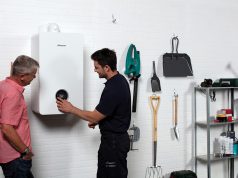
If you feel your power supply is unreliable because of weather conditions, wearing out, or economic issues, you may be already thinking about buying a generator. For home use, low-capacity generators may be a real salvation. You may be impressed by reading 3,000-watt generator reviews, which say these machines are strong enough to replace the power line. But what if you need more or less? Which fuel is better? Which extra features do you need? Instead of recommending the best models without knowing your situation and requirements, we’d rather give you some tips on choosing.
What Is a Low-Capacity Generator?
There is no common classification for generators by capacity. The most common one defines a “low-capacity generator” as one can produce up to 5,000 W, but in most cases, 3,000 W will suffice. These generators are strong enough to keep your house functioning (if you unplug everything unnecessary) and yet neither too noisy or fuel-consuming nor too expensive.
What’s the Reason to Buy a Low-Capacity Generator?
For most households, a low-capacity generator is the best option. These models consume fuel moderately and provide enough power to keep your home appliances on. The trickiest thing is to define what’s “enough.” Take your time and do the math before ordering the model you like, even if you like it a lot.
To calculate the exact capacity, you need to:
- List all the appliances you may power with this generator simultaneously. Don’t forget that the capacity to start an appliance may be much higher than necessary for its continuous functioning.
- Calculate the overall power they might need.
- Add a quarter of your overall capacity to keep them all running. This is necessary because generators perform best at about 80% of their maximum capacity.
When you need a generator as a backup power source for home, add up all the appliances you may want to run. It will be all the lights (though hardly you will have them all on simultaneously), the fridge, the electric oven or stove, the desktop PC, the TV, and the mobile chargers – one for each device (including power banks you better keep full). If you need it outdoors, calculate the requirements of the outdoor equipment, whether it’s recreational or functional.
If the result falls into the low-capacity category (under 3,000 W), you’ll be good with a low-capacity generator. It may even be under the upper limit, so you can choose a cheaper one. But while you can go for lower figures, it’s not a reason to sacrifice quality.
What to Look at When Choosing a Generator for Outdoors
So, what do you consider when you know what capacity generator you need? Here are the most important things.
- Type of fuel. If you want to install it as a standby generator, propane is the best option, as you can connect it to the propane pipe or use tanks. A portable one for outdoor use is usually better with gas. It’s often reasonable to buy a dual-fuel generator, though they aren’t the cheapest.
- Invertor. Generators equipped with an invertor are usually more expensive. Yet they regulate the performance according to the actual power consumption and, thus, save fuel, being more economical and ecological. In addition, the current they produce is more stable and less likely to damage your equipment.
- Portability. It’s crucial for outdoor equipment. Look at the weight and the form factor: is it more convenient to have a pair of wheels, a single handle, or a dual one? The answer depends on how and where you use it.
- Fuel capacity. It may be annoying when you need to refuel it often.
- Outputs. While most generators have standard 120V outputs, there may be a need for a 12V output and/or USB ports.
- Noise level. It’s not as important if it’s stationed in the basement, but if you keep it running next to your house, the noise may be annoying.
- Manufacturer. A generator by a respectable brand (Westinghouse, Honda, Champion, etc.) is likelier to function correctly, and it’s the device you want to function as properly as possible. In addition, established brands provide better customer service.
We hope these tips will help you find the best generator for your household or small business. Stay warm and lit!













